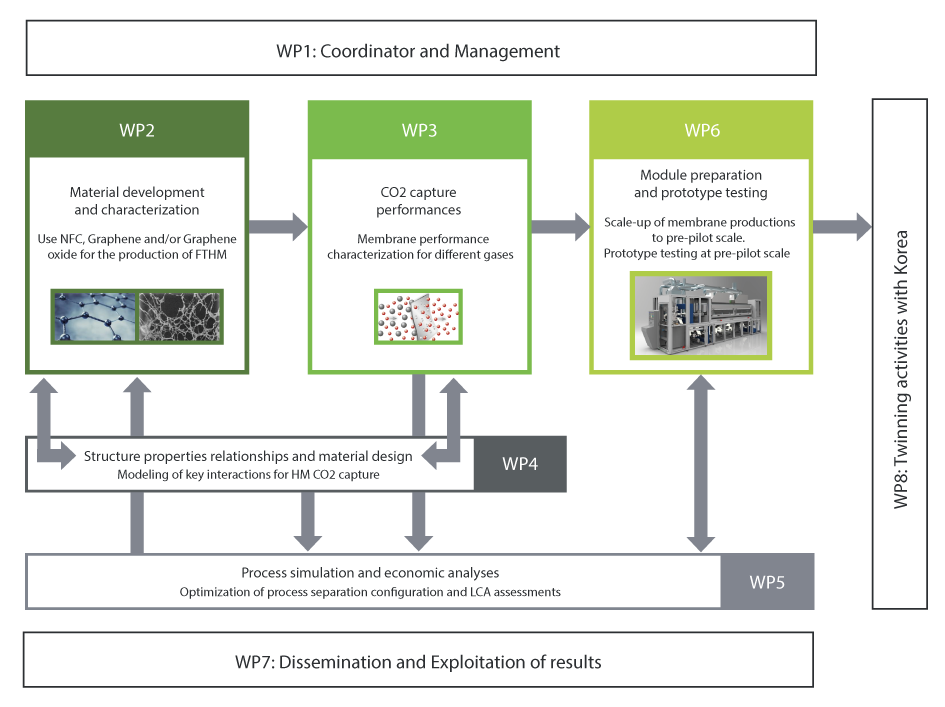Membrane separation processes can be applied to many CO2 capture processes from pre-combustion (CO2-H2 / CO2– CH4 separation) to post-combustion (CO2-N2) and oxyfuel (O2-N2) and are generally endowed with high flexibility and potentially low operating costs when compared to other capture methods. However the current materials lack the separation performance and durability needed for an efficient and economically feasible exploitation of such technology.
The NANOMEMC2 project aims to overcome the current limitation by focusing on the development of innovative CO2 selective membranes with high flux and selectivity suitable for application to both pre and post-combustion capture processes.
To address this objective nano-composite or mixed matrix membranes will be developed with particular focus on facilitated transport mechanisms promoted by carrier attached to the polymer or the filler.
Graphene based nanoplatelets and cellulose nano-fibres will be studied in detail along with possible modification to improve polymer compatibility and affinity with CO2.
New generations of Facilitated Transport Mixed Matrix (FTMM) and Continuous Phase Mixed Matrix membranes for CCS applications will be developed with increased performance for both pre-combustion and post-combustion capture. Both hydrogen selective (for pre-combustion) and CO2 selective membranes (for both pre and post combustion) will be developed targeting flux and selectivity beyond the current performance for industrial deployment of carbon capture membrane technologies.

 NANOMEMC2 is a project funded by the European Commission. This project has received funding from the European Union's Horizon 2020 Research and Innovation program under Grant Agreement n° 727734. This website reflects only the author’s view and the Commission is not responsible for any use that may be made of the information it contains.
NANOMEMC2 is a project funded by the European Commission. This project has received funding from the European Union's Horizon 2020 Research and Innovation program under Grant Agreement n° 727734. This website reflects only the author’s view and the Commission is not responsible for any use that may be made of the information it contains.